Post
A catch
Save a catch to start your fishing logbook. You will be able to to share it with the community if yo want!
A fishing trip
Post an ad to go fishing with other fishermen
Save a catch to start your fishing logbook. You will be able to to share it with the community if yo want!
Post an ad to go fishing with other fishermen
Share a thought, a question with the community
My favorite cities
×Keep your rods ready for Lingleville in Erath. The fishing forecast is currently 5.1. The most caught fishes here are the muskellunge, the largemouth bass, the pallid sturgeon and the smallmouth bass. Come try the most famous fishing techniques like the fishing bream from a dock or jetty, trolling for bonito, fishing for sea bass while surfcasting or support fishing for bass.
Our fishing forecast of Lingleville indicates the best time to go fishing in this city.
The Muskellunge
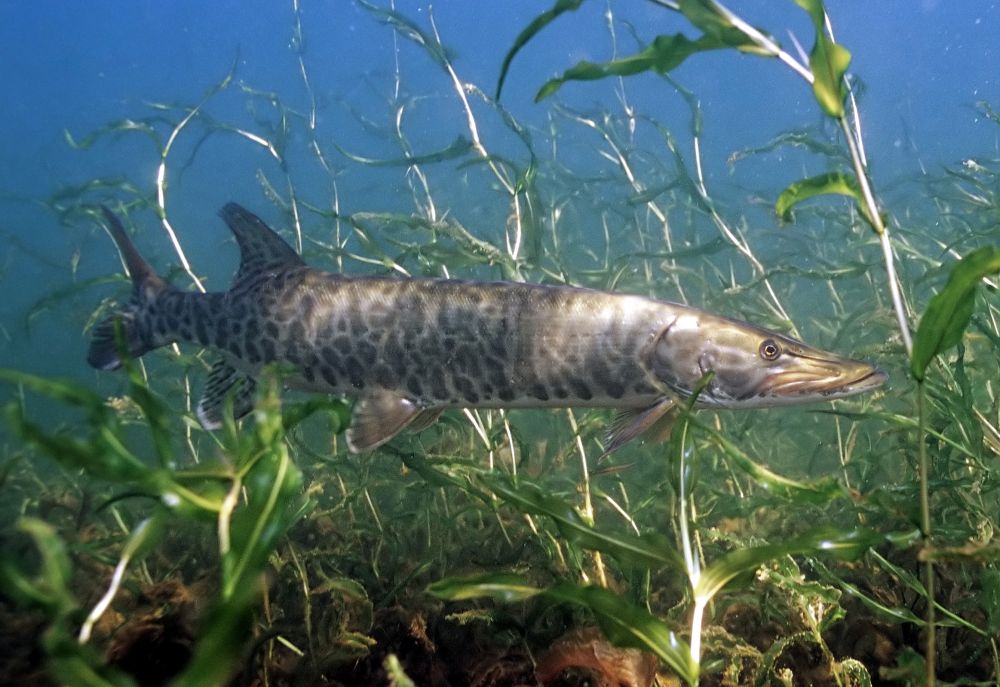
The Muskellunge belongs to Esocidae family. It can reach 150 cm of length for 30 kg. It has a lifespan of 30 years. They spawn in springs. It can be fished all year round. The sides vary from greenish to brownish to silvery, usually with dark marks, but marks may be absent. The white or cream belly often has brownish or greyish spots. The dorsal and anal fins, located far away on the body, range from greenish to brownish to blood-red and generally have dark marks. The duckbill jaws have long, pointed teeth: the roof of the mouth has shorter, curved tooth pads. The cheek cover and gills have scales on the upper half only. The underside of the jaw has sensory pores, the numbers varying from 12 to 20, but the number is generally 15 to 18.
The Muskellunge is a famous fish you can catch in Lingleville.The Largemouth Bass
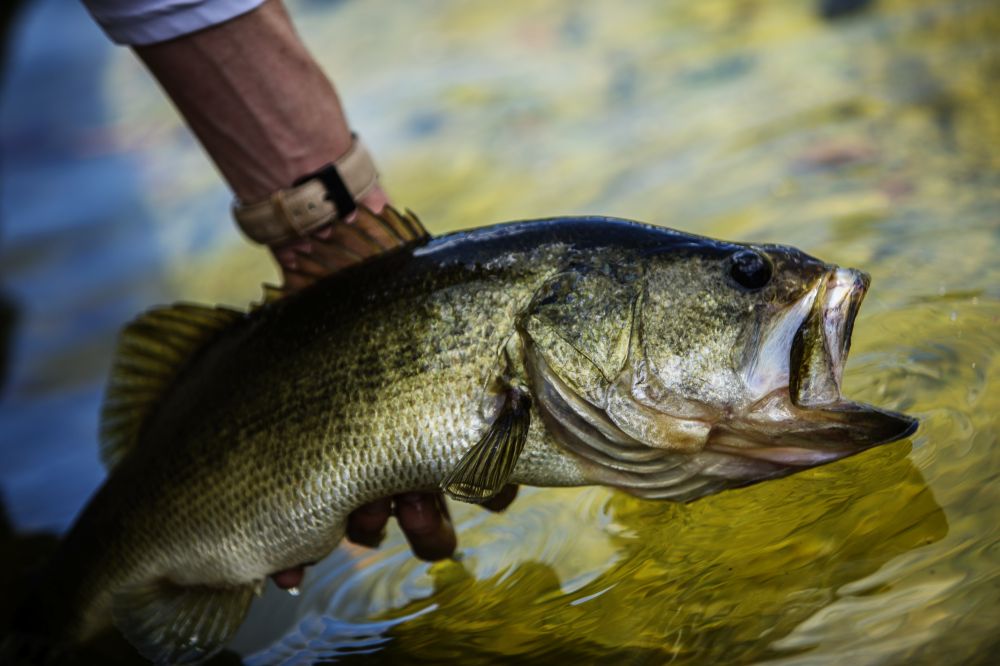
The Largemouth Bass belongs to the Centrarchidae family. It has an average size of 45 cm but may reach 60 cm. The maximum recorded weight was 10,09 kg. It has a lifespan of 6 years. It breeds between February and July. It can be fished all year round. Largemouth bass has a large mouth with a slightly oblique mouth. Its body is thin to robust, slightly flattened laterally and of oval cross-section. The corner of the mouth extends beyond the eye. The back and head are dark green to light green in color with lighter sides and a whitish belly and underside. A large lateral band can be seen from the snout through the eyes to the base of the tail. Towards the tail, there is a series of spots of different sizes. These spots become a solid and uniform band on the caudal peduncle. The eye is golden brown. Vertical fins slightly pigmented, generally clear paired fins; caudal fin in young and adult. Adults in muddy lakes are dark olive brown to black, with marks that are difficult to distinguish. Males in breeding condition tend to be darker in color.
The Largemouth Bass is a famous fish you can catch in Lingleville.The Pallid Sturgeon
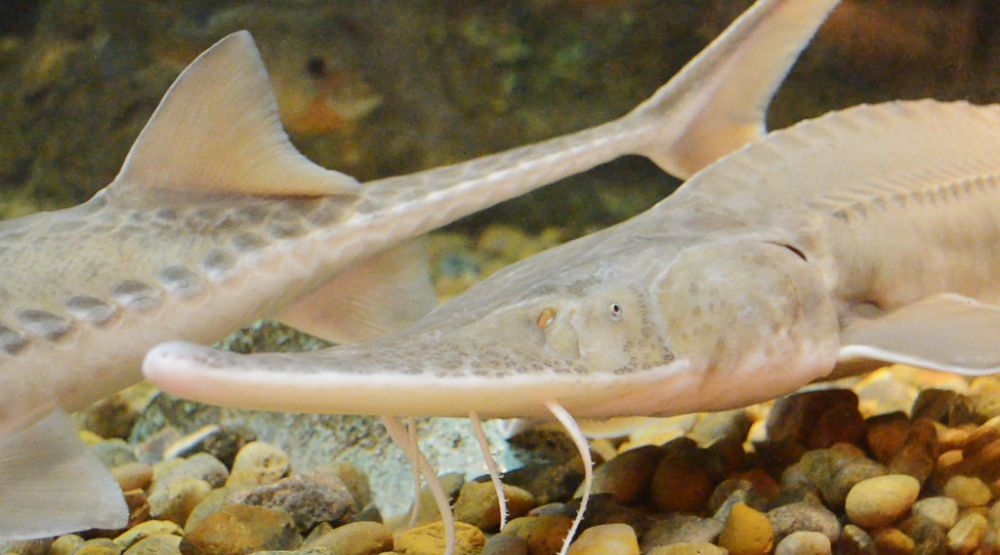
The Pallid Sturgeon belongs to the Acipenseridae family. it measures between 70 and 150 cm long and 39 kg in adulthood. The Pallid Sturgeon takes 15 years to reach maturity, and can live for more than a century. it breeds from May to July. Considered as endangered, it cannot be caught. Like the other Acipenseridae, it is considered as a "living fossil". The Pallid Sturgeon has a characteristic appearance that makes it to be qualified as "primitive" or "dinosaur". It has a pale color, especially in adults who fade with time, with a greyish back and sides. Its caudal fin is heterocercal, with an upper lobe more developed than the lower lobe. Like other sturgeons, the Pallid Sturgeon has no calcified scales or bones, unlike more recent fish species. It has a cartilaginous skeleton with five rows of thick patches that extend along its sides, belly, back and most of its head. These plates are covered by the skin and protect the animal. This cartilage also extends to the back of the fish’s body, between the dorsal fin and the tail. The mouth starts well set back from the tip of the head. Because it has no teeth, it uses this stretchy mouth to suck small fish, shellfish and other foods from the bottom of the river. Like all sturgeons, it has four barbells. We think they have a sensory role in detecting food.
The Pallid Sturgeon is a famous fish you can catch in Lingleville.The Smallmouth bass
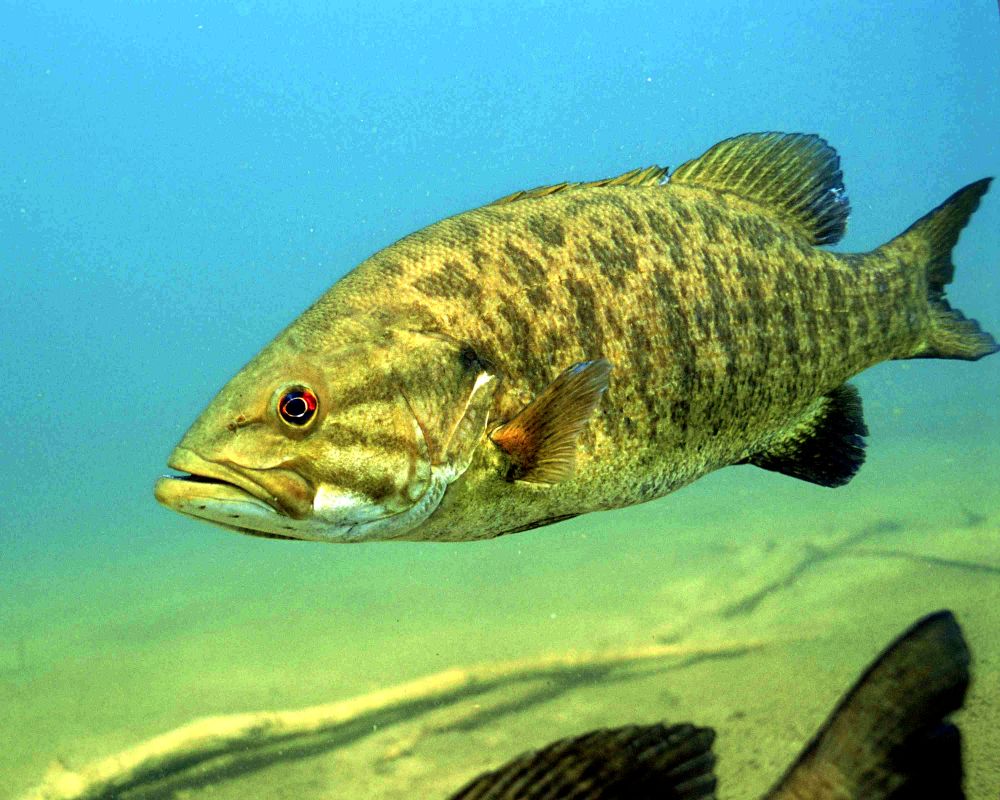
The Smallmouth bass belongs to the Centrarchidae family. The individuals observed measure between 20 and 38 cm. They weigh from 250 g to 1 kg. They can live up to 26 years. They reproduce from May to July. The best time to catch them is in autumn. Smallmouth bass is a fish with a strong body, compressed laterally. The head is broad and elongated. It is adorned with dark bars radiating backwards from the eyes. The back and top of the head are brown or golden brown, green or olive green. Contrary to its vernacular name, its mouth is rather large! Smallmouth bass has a long, rounded snout. The upper jaw does not extend beyond the upper edge of the eye. The anal fin has 3 strong spines. Both dorsal fins are slightly rounded and rather soft. They are linked and seem to form only one fin. The spines of the first dorsal fin are short and of almost the same length. The pelvic fins are joined by a membrane. The caudal fin is forked. The pectoral fins are transparent, all the others are opaque, dark or amber and decorated with black on the rays, spines or membranes. The back is darker and less golden than the sides. The flanks are marked with 8 to 15 thin vertical bars of dark appearance; this characteristic is more pronounced in juveniles. The belly of smallmouth bass is cream to milky in color. Body color varies according to size, but also according to its environment: in clear waters, it is dark and enhanced by pronounced contrasting marks, while in turbid waters, it is lighter and
The Smallmouth bass is a famous fish you can catch in Lingleville.The Pacific Lamprey
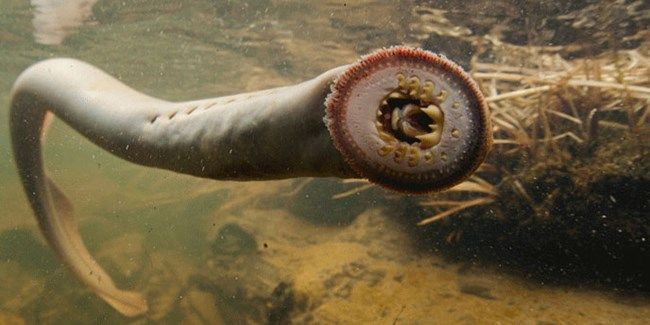
The Pacific Lamprey belongs to the Petromyzontidae family. The adult size of the pacific lamprey can reach 80 cm. It can live up to 5 years. The spawning period depends on the location. It can be caught between July and September when it enters freshwater. The Pacific Lamprey differs from other lamprey species in that it has three large, sharp anterior teeth located on the supraoral bar. Like all lampreys, they have seven breathable pores on each side of their bodies and a large suction disc that acts as a mouth. They are dark blue at the top and silver or white at the bottom. During the breeding season, Pacific lampreys turn reddish brown and the appearance of the sexes begins to differentiate as a pseudo-anal fin develops on the female. Their larvae are difficult to distinguish from those of other lamprey species.
The Pacific Lamprey is a famous fish you can catch in Lingleville.Our fishing forecast of Lingleville indicates the best time to go fishing in this city.
Our fishing forecast of Lingleville indicates the best time to go fishing in this city.
Our fishing forecast of Lingleville indicates the best time to go fishing in this city.
